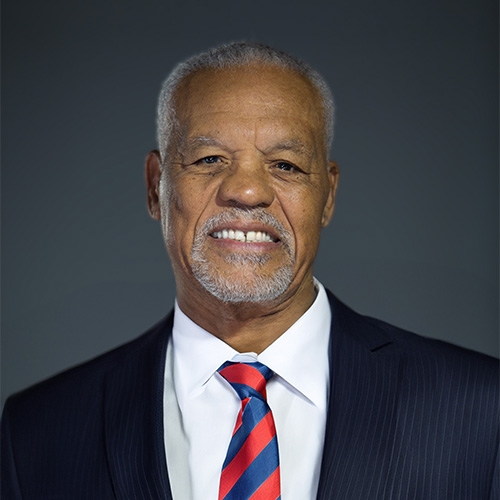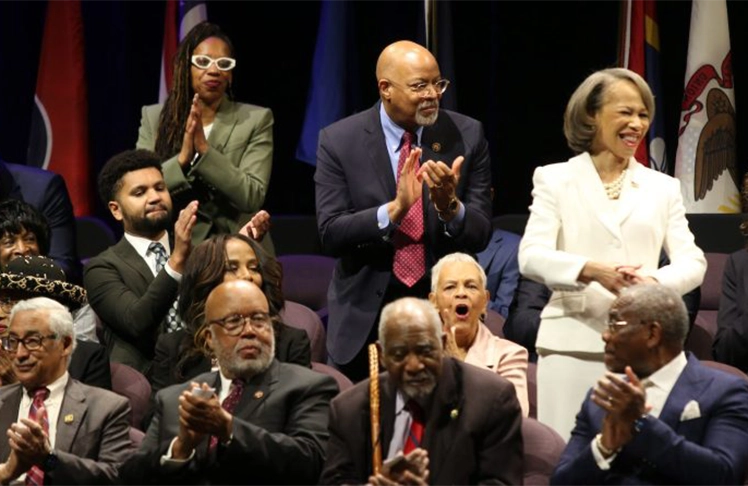- BlackVoter.Org
- Posts
- BLACKVOTER.ORG
BLACKVOTER.ORG

The trial of the "Kansas City 3" has sparked outrage as three African American men face serious federal charges for sending humanitarian aid to conflict-affected civilians in Southern Cameroon. Jailed since November 2022, Claude Chi, Frank Chenyi, and Lah Nestor Langmi are accused of material support for terrorism simply for raising funds to help their community defend against military attacks.
Critics argue this case highlights a disturbing double standard in how U.S.
laws are applied selectively, favoring those providing aid to conflicts involving white populations, while targeting African Americans supporting their homeland. Amidst widespread calls for justice, advocates are urging U.
S. Attorney General Merrick Garland and Congress to intervene and rectify what they deem a clear injustice.
This disturbing situation raises crucial questions about equity, racial bias, and the treatment of Americans supporting foreign communities in crisis.

Vice President Kamala Harris is stepping into a historic role as she leads the certification of her own electoral defeat to Donald Trump, a poignant moment that comes four years after the Capitol insurrection aimed at overturning the same electoral process. Harris described her duty as a “sacred obligation,” underscoring the fragility of democracy.
Reflecting on that turbulent day in January 2021, when violence disrupted Congress, she vowed to honor the election results and uphold American values. This marks a rare instance where a vice president presides over such a ceremonial confirmation of defeat.
Harris’s actions this time are expected to remain calm, in stark contrast to the chaos of 2021, as Trump’s team promises a smooth transition. While the scene recalls past contested elections, Harris's leadership emphasizes the importance of accepting electoral outcomes as a hallmark of democracy.

As Donald Trump gears up for a potential second term, concerns are mounting about his plans to reshape the U.S.
Justice Department and its approach to voting rights. Experts warn he could significantly weaken enforcement of the Voting Rights Act, utilizing the agency to target political enemies and promote baseless claims of voter fraud.
Trump's recent appointments, including staunch loyalists like Pam Bondi and Harmeet Dhillon, signal a possible return to his first administration's lack of enforcement in critical voting rights cases. Following a documented history of limiting investigations during his time in office, the new administration may block efforts to protect voter rights, potentially leading to political prosecutions and challenges to established laws designed to ensure fair voting practices.
With these developments, the future of U.S.
voting rights hangs in the balance, prompting fears that significant strides made in civil rights could be reversed.

In "Jimmy Carter: A Black Perspective," Preston Love Jr. reflects on his interactions with President Jimmy Carter and the broader context of Black political empowerment during the 1970s.
He revisits the tumultuous era marked by the Civil Rights Movement and the landmark Black Political Conference in Gary, Indiana, which galvanized Black leadership. Love highlights the significance of Carter's presidency, noting the unprecedented 90% Black voter support he garnered in 1976, influenced by the groundwork laid in earlier years.
He recalls a memorable meeting with Carter when assessing the potential presidential run by Jesse Jackson. Love emphasizes the importance of recognizing Carter’s contributions to both the presidency and his deep connections with the Black community, lamenting that his legacy often goes underappreciated.
This engaging narrative weaves personal experience with historical milestones, showcasing the evolving dynamics of Black political engagement in America.

Ralph Ellison's Invisible Man, published in 1952, is a powerful exploration of identity and race in America, delving into the life of a nameless African American protagonist who grapples with societal invisibility. As he migrates from the South to New York City, he navigates a surreal world where people only acknowledge his surroundings, leaving him feeling unseen.
His journey leads him to a subterranean refuge, illuminated by stolen electricity, symbolizing his quest for self-discovery. Ellison’s narrative intricately combines existential questions with sociopolitical commentary, illuminating the African American experience through a kaleidoscope of cultural masks.
The protagonist's struggles parallel broader themes of identity, alienation, and the historical backdrop of systemic racism. Through incisive humor and a rich tapestry of language, Invisible Man remains a landmark of American literature, challenging readers to confront the complexities of race and selfhood in an ever-shifting landscape.

In "Crack-Up Capitalism," author Quinn Slobodian critiques how billionaire Elon Musk’s extreme ideologies are reshaping global politics, particularly under Trump’s administration. Musk is not just a tech mogul; he’s becoming a disruptive force in contemporary politics, aligning with far-right movements in both the U.
S. and Europe.
His recent actions, including supporting anti-immigrant rhetoric and promoting authoritarian strongmen, illustrate a radical departure from traditional politics. Slobodian argues that Musk’s endeavors harmonize a disturbing fusion of extreme market capitalism and nationalism, which could threaten democracy at its core.
As Musk’s influence grows, he raises questions about the future of governance and the potential for authoritarianism in capitalist frameworks. In a world increasingly shaped by the likes of Musk, Slobodian warns that mainstream politicians may struggle to counter this chaotic, disruptive new order.

The Congressional Black Caucus (CBC) is celebrating a transformative moment with a record-breaking 62 members sworn in for the 119th Congress. This historic assembly includes trailblazers like Senators Angela Alsobrooks and Lisa Blunt Rochester, the first Black women to serve together in the Senate.
Additionally, Shomari Figures joins Rep. Terri Sewell, marking the first time Alabama will have two Black representatives simultaneously.
Founded in 1971 with just 13 members, the CBC has grown in size and influence, reaffirming its mission to combat racism and advance equity across various sectors. Despite the challenges posed by the new administration, CBC members express unwavering commitment to advocating for Black Americans' rights.
As they unite for progress, leaders emphasize resilience: "A setback is a setup for a comeback." The swearing-in ceremony, attended by notable figures, marks a hopeful chapter in the nation’s legislative landscape.